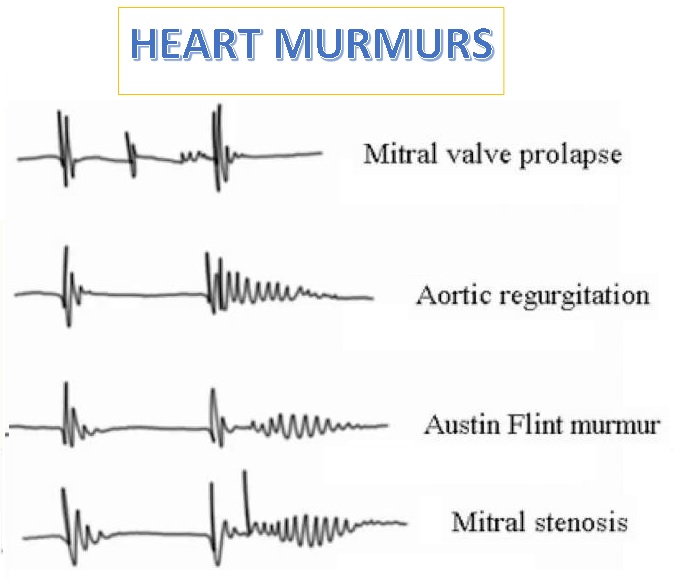
A heart murmur is used to express sounds that occur as a result of disruption of the flow of blood as it circulates through the heart. Under normal conditions, such sounds do not occur when blood flows in a healthy way in the heart. However, in some cases, these murmurs heard in the heart; heart holes can indicate heart valve diseases or some problems in the heart vessels.
Murmur is not a disease name, it is the general name of the loud sounds heard in the heart. It is an examination finding that may be a harbinger of heart disease. The cause of the murmur is important. Murmurs can be divided into two main groups as pathological murmurs and innocent murmurs.
More severe murmurs are murmurs caused by conditions such as a valve stenosis or insufficiency, a vascular stenosis, or a hole in the heart, depending on the place and type we hear.
They are light, usually musical sounds heard for reasons such as the vibration of insignificant fibrous bands inside the heart, even though the heart is normal, which is very common especially in childhood. There is no disease here.
Types of Murmurs Heard are divided into 3;
Diastolic Murmurs are heard during the relaxation of the heart. They are low frequency.
Continuous Murmurs are heard during both contraction and relaxation of the heart.
Systolic Murmurs are heard during the contraction of the heart.
As a result of the examination, the heart disease specialist can most likely tell which group the murmur heard in the patient will fall into.
Then, a definitive diagnosis is made by requesting additional tests.
Additional tests:
It roughly indicates the size of the heart, the location of the lungs and major vessels.
Indicates whether there is a disturbance in the electrical conduction of the heart.
In this method, also known as heart ultrasound, the condition and functionality of intracardiac structures are evaluated during the heart’s work. Echocardiographic examination is recommended for definitive diagnosis, especially in children under 2 years of age.
A catheter is inserted through the groin to measure the pressures in the heart chambers.
Congenital or acquired cardiovascular problems cause murmurs in their own specific places and of different qualities. There are many types of murmurs according to their severity and frequency.
While they are completely harmless, they can also be a sign of mild or severe heart disease. Or there are temporary functional murmurs that can be heard even though the heart and vessels are normal in conditions that increase the blood flow rate, such as anemia, pregnancy, and overworking of the thyroid gland.
The presence of any of the following symptoms, with or without a murmur, may be a precursor to heart disease.
Murmurs are not treated. The disease causing the murmur (if any) is treated. If it’s caused by a more serious heart condition, your doctor may recommend treatment for that heart condition.
Treatment may include medications, cardiac catheterization or surgery. Treatment for abnormal heart murmurs depends on the type and severity of the heart condition causing the murmur.
If the murmur is heard due to a vascular stenosis, it will disappear when you remove the stenosis. Or, if it’s a hole in the heart, once you close the hole that caused the murmur, the murmur will no longer be heard.
In functional murmurs caused by increased blood flow velocity, for example, when you treat anemia if it is due to anemia, the murmur will disappear if you treat it due to hyperthyroidism.
What is Varicocele? Varicocele is the varicose veins that drain the blood in the testicles,…
What is Hemorrhoids ? It is a disease caused by the loosening of the veins…
What Is Monkeypox Virus? Symptoms and Ways of Transmission! The monkeypox virus, which has been…
What is Pelvic Venous Congestion Syndrome? (Failures Observed in Ovarian/Testicular Veins) What is Pelvic Venous…
What is Myoma ? Myoma, is a benign tumor arising from the uterine muscles. It…
What is Back Lift? Back stretching, excessive weight gain and aging may cause you to…